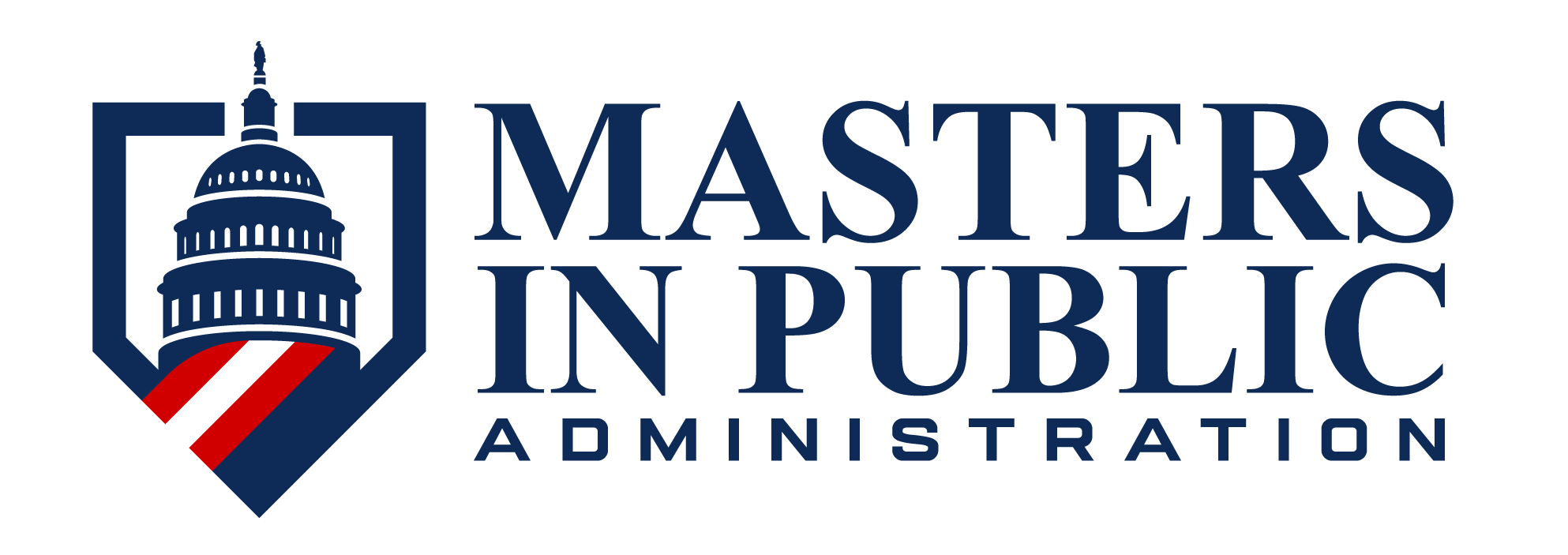Introduction
In today’s ever-changing world, the significance of effective governance, sustainable urban development, and community planning cannot be overstated. Professionals in fields such as Public Administration (MPA) and Urban and Regional Planning (MURP) play crucial roles in shaping policies, managing resources, and creating livable and fair communities. However, understanding the distinctions between these two disciplines can be challenging for those considering a career in public service or urban development. In this blog post, we will explore Public Administration and Urban and Regional Planning in detail, comparing their degree requirements, curriculum content, time to completion, and career prospects. By the end of this examination, readers will gain valuable insights into the unique aspects of each field and make informed decisions about their academic and professional paths. So, let’s dive into this exploration of Public Administration versus Urban and Regional Planning degrees.
ADVERTISEMENT
Walden University
Online Public Policy and Administration Programs
Walden University’s Public Administration programs are taught by a distinguished faculty of scholar-practitioners, many of whom have senior-executive experience in government and public service. Programs include:
Arizona State University
Online Master of Public Administration (MPA)
ASU’s Online Master of Public Administration provides students with a curriculum that covers leadership strategies, ethical decision-making, and effective management across various organizations.
Liberty University
Online Master of Public Administration (MPA)
Liberty University’s Master’s Degree in Public Administration Online is designed to equip students with a thorough background in the theories and practices essential for success in government and nonprofit roles. MPA areas of focus include:
Southern New Hampshire University
Online Public Administration & Political Science Degrees
Stand up and be counted with a degree in public administration/political science from Southern New Hampshire University—and learn how to facilitate change from within the system. Program offerings include:
MPA vs. MURP: Degree Comparison
Public Administration and Urban and Regional Planning degrees share common goals of improving communities and addressing societal challenges, they offer distinct perspectives and skill sets. Public Administration programs focus on governance, policy analysis, and public management, while Urban and Regional Planning programs emphasize urban design, land use planning, and community development. Ultimately, the choice between an MPA and an MURP degree depends on individual interests, career goals, and desired areas of specialization. Both degrees provide valuable tools and opportunities for making a positive impact in communities and shaping the future of public service and urban development.
Degree Requirements
Public Administration (PA) Degree:
A Master of Public Administration (MPA) degree typically requires coursework in areas such as public management, policy analysis, budgeting and finance, organizational behavior, and public policy. Depending on the program, students may also have the opportunity to specialize in areas such as nonprofit management, healthcare administration, or environmental policy. Some programs may require internships or capstone projects to provide experience in the field.
Urban and Regional Planning (URP) Degree:
A Master of Urban and Regional Planning (MURP) degree focuses on the theory and practice of urban planning, land use, transportation, environmental planning, economic development, and community development. Coursework may cover topics such as urban design, GIS mapping, zoning regulations, housing policy, and sustainability planning. Similar to MPA programs, MURP programs may also offer specializations or concentrations in areas like transportation planning, environmental planning, or economic development.
Topics Covered
MPA Degree:
MPA programs cover a wide range of topics related to public administration and governance, including public policy analysis, budgeting and finance, human resource management, organizational behavior, ethics and leadership, and program evaluation. Students learn how to navigate the complexities of government systems, manage public resources, and develop and implement policies to address societal challenges.
Common core competencies of a Master of Public Administration (MPA) graduate program typically encompass a broad range of skills, knowledge, and abilities necessary for effective leadership and management in the public sector. These competencies are designed to prepare graduates to address complex public policy issues, manage public resources, and lead organizations in the government, nonprofit, and international sectors. Some common core competencies of an MPA program include:
- Public Policy Analysis: MPA graduates should be proficient in analyzing public policies, understanding their underlying principles, and evaluating their effectiveness. They should be able to assess policy alternatives, conduct cost-benefit analyses, and make evidence-based recommendations to policymakers.
- Budgeting and Financial Management: MPA programs often include coursework in budgeting, financial management, and fiscal policy. Graduates should have a solid understanding of public finance principles, budgetary processes, and financial techniques for managing public resources and ensuring fiscal accountability.
- Organizational Management and Leadership: MPA graduates should possess leadership and management skills necessary for leading public organizations and managing teams effectively. They should understand organizational behavior, human resource management, and strategic planning, and be able to foster a culture of innovation, collaboration, and accountability within public organizations.
- Program Evaluation and Performance Measurement: MPA graduates should be able to assess program effectiveness, measure performance outcomes, and evaluate the impact of public policies and programs. They should be familiar with evaluation methodologies, data analysis techniques, and performance measurement frameworks for monitoring and improving public sector performance.
- Intersectoral Collaboration and Partnership Building: Given the complex nature of public policy issues, MPA graduates should be able to collaborate effectively with stakeholders from diverse sectors, including government agencies, nonprofit organizations, and private businesses. They should possess strong communication, negotiation, and relationship-building skills to foster partnerships to address complex societal challenges.
MURP Degree:
MURP programs focus on urban and regional planning principles and practices, encompassing topics such as land use planning, transportation planning, environmental planning, urban design, housing policy, economic development, and community engagement. Students gain skills in spatial analysis, GIS mapping, data interpretation, and stakeholder collaboration to design and implement sustainable and equitable solutions for communities.
Common core competencies of a Master of Urban and Regional Planning (MURP) graduate program typically include a combination of technical skills, analytical abilities, and professional knowledge necessary for planning practice. These competencies are designed to prepare graduates to address complex urban and regional challenges effectively. Some common core competencies of an MURP program include:
- Spatial Analysis: MURP graduates should be proficient in using Geographic Information Systems (GIS) and other spatial analysis tools to analyze geographic data, map spatial patterns, and identify spatial relationships relevant to planning issues such as land use, transportation, and environmental sustainability.
- Land Use Planning: Graduates should have a solid understanding of land use planning principles, including zoning regulations, comprehensive planning processes, and techniques for managing urban growth and development. They should develop land use plans that balance economic, social, and environmental considerations.
- Transportation Planning: MURP programs often include coursework in transportation planning, covering topics such as traffic analysis, transit planning, and multimodal transportation systems. Graduates should be able to assess transportation needs, design transportation networks, and implement policies and programs.
- Environmental Planning: Environmental planning is another core competency of MURP programs, focusing on strategies for preserving natural resources, protecting environmental quality. Graduates should understand environmental regulations, conduct environmental assessments, and develop plans for sustainable resource management.
- Community Development: MURP graduates should have knowledge of community development principles and strategies for promoting social equity, economic development, and community revitalization. They should be able to engage with diverse stakeholders, facilitate community participation, and implement initiatives.
ADVERTISEMENT
Walden University
Online Public Policy and Administration Programs
Walden University’s Public Administration programs are taught by a distinguished faculty of scholar-practitioners, many of whom have senior-executive experience in government and public service. Programs include:
Arizona State University
Online Master of Public Administration (MPA)
ASU’s Online Master of Public Administration provides students with a curriculum that covers leadership strategies, ethical decision-making, and effective management across various organizations.
Liberty University
Online Master of Public Administration (MPA)
Liberty University’s Master’s Degree in Public Administration Online is designed to equip students with a thorough background in the theories and practices essential for success in government and nonprofit roles. MPA areas of focus include:
Southern New Hampshire University
Online Public Administration & Political Science Degrees
Stand up and be counted with a degree in public administration/political science from Southern New Hampshire University—and learn how to facilitate change from within the system. Program offerings include:
Time to Completion
MPA Degree:
The time to complete an MPA degree can vary depending on whether students choose to pursue the program full-time or part-time. Full-time programs typically take two years to complete, while part-time programs may take three to four years, allowing students to balance coursework with other commitments such as work or family responsibilities.
MURP Degree:
Similarly, the time to complete an MURP degree depends on the program format and whether students enroll full-time or part-time. Full-time MURP programs usually take two years to complete, while part-time programs may extend to three or four years. Some programs may offer accelerated or dual-degree options for students seeking to combine their planning studies.
MPA / MURP Dual-Degree Programs
University of Pennsylvania
- Philadelphia, PA
- Campus
Program:
Stuart Weitzman School of Design
Modality: On-Campus
Credits: 66
Program Overview:
The MCP/MPA joint degree program, offered by the Fels Institute of Government and the Weitzman School, integrates the planning process with public administration, broadening career prospects for students. Graduates of this program are well-suited for roles in nonprofit organizations, private consulting firms, businesses, and government agencies.
Eastern Washington University
- Cheney, WA
- Online + Campus
Program:
Public Administration Department
Modality: Online/On-Campus
Credits: 79
Program Overview:
The dual-degree program offers the opportunity to earn both a Master of Public Administration (MPA) and a Master of Urban Planning (MURP) degree concurrently. Required courses in one program count as electives in the other, effectively reducing the number of credits needed for each degree.
University of Colorado – Denver
- Denver, CO
- Online + Campus
Program:
School of Public Affairs
Modality: Online/On-Campus
Credits: 66-72
Program Overview:
The dual MPA/MURP degree program, sponsored jointly by the School of Public Affairs and the College of Architecture and Planning, allows students to integrate the core curriculum of both programs and select electives that fulfill requirements for both degrees, aligning with their career and personal objectives. To qualify for this dual-degree program, students must meet admission criteria for both schools.
Auburn University
- Auburn, AL
- Online + Campus
Program:
College of Liberal Arts
Modality: Online/On-Campus
Credits: 57
Program Overview:
The intersection of Community Planning and Public Administration in governmental activities in the United States highlights the complementary nature of expertise and career development in these fields. As a result, a dual degree program offering a Master of Community Planning (MCP) alongside a Master of Public Administration (MPA) presents an appealing opportunity for students interested in both areas.
University of Kansas
- Lawrence, KS
- Campus
Program:
School of Public Affairs and Administration
Modality: On-Campus
Credits: 72
Program Overview:
This program merges the typical coursework requirements of the Master of Urban Planning (42 credit hours) and the Master of Public Administration (43 credit hours) into a streamlined curriculum totaling 72 credit hours, completed over three years. Students aiming to understand and guide urban development will acquire essential planning, sustainability, and administrative skills by pursuing this dual degree.
University of Southern California
- Los Angeles, CA
- Online + Campus
Program:
Price School
Modality: Online/On-Campus
Credits: 64
Program Overview:
The dual-degree program in Master of Urban Planning/Master of Public Administration focuses on exploring the connections between planning and public administration. It emphasizes the development of administrative skills, budgeting, fiscal analysis, and an understanding of local government operations. The program also delves into planning operations within the framework of municipal management. Typically, students spend five semesters in residence to complete this dual degree.
University of North Carolina
- Chapel Hill, NC
- Campus
Program:
UNC School of Government
Modality: On-Campus
Credits: 67
Program Overview:
The MPA/MCRP dual-degree option offers students specialized training in both public administration and city planning, equipping them for careers in local government. This program blends the focused skill set of city planning with the comprehensive leadership skills of the MPA. Students undergo three years of coursework, fulfilling internship and professional work experience requirements for both programs.
University of Utah
- Salt Lake City, UT
- Online + Campus
Program:
School of Public Affairs
Modality: Online/On-Campus
Credits: 60
Program Overview:
The MPA/MCMP program is designed on the premise that studying city and metropolitan planning alongside public administration offers both intellectual and professional advantages. This dual degree aims to prepare students for careers in local government, particularly in small towns and rural areas with rapid growth, where administrators and planners handle diverse responsibilities.
University of Wisconsin – Milwaukee
- Milwaukee, WI
- Campus
Program:
Center of Letters and Science
Modality: On-Campus
Credits: 54-57
Program Overview:
This program enables students to pursue master’s degrees in Public Administration and Urban Planning simultaneously. It entails completing 42-45 credits of required courses and fulfilling a Public Administration concentration (18 credits). However, as certain courses completed for the Urban Planning core may also fulfill the MPA concentration, students can fulfill the dual degree with a minimum of 54-57 credits.
Comparing Career Fields and Professional Opportunities
Public Administration and Urban and Regional Planning offer diverse career paths and professional opportunities for individuals passionate about making a positive impact on communities. By exploring these career fields and leveraging professional resources, aspiring professionals can gain valuable insights and guidance to navigate their career journeys.
Career Fields
Public Administration
MPA professionals are instrumental in managing public resources, implementing policies, and ensuring efficient governance at various levels of government and within nonprofit organizations. Some common career paths and examples of work include:
- City Manager: City managers oversee the day-to-day operations of municipal governments, ensuring the effective delivery of public services such as public safety, transportation, and utilities. They coordinate with department heads, manage budgets, and implement policies to address community needs and priorities.
- Policy Analyst: Policy analysts conduct research and analysis to inform policy development and decision-making processes. They assess the impacts of proposed policies, evaluate existing programs, and provide recommendations to policymakers based on empirical evidence and best practices.
- Nonprofit Executive Director: Nonprofit executive directors lead nonprofit organizations, overseeing strategic planning, fundraising efforts, program development, and organizational management. They collaborate with stakeholders, mobilize resources, and advocate for social change to address community needs and advance organizational missions.
Urban and Regional Planning
MURP professionals focus on shaping the physical, social, and economic development of cities and regions to create sustainable and equitable communities. Some common career paths and examples of work include:
- Urban Planner: Urban planners develop land use plans, zoning regulations, and development policies to guide growth and development in urban areas. They collaborate with stakeholders, conduct research, and engage the community to design vibrant, inclusive, and resilient neighborhoods.
- Transportation Planner: Transportation planners design and implement transportation systems and infrastructure to improve mobility, accessibility, and safety within communities. They analyze traffic patterns, assess transit needs, and develop plans for roadways, public transit, and alternative transportation modes.
- Environmental Planner: Environmental planners assess the environmental impacts of development projects and policies, ensuring compliance with environmental regulations and promoting sustainability. They conduct environmental assessments, develop mitigation strategies, and advocate for conservation and green infrastructure initiatives.
Professional Resources
Public Administration
- International City/County Management Association (ICMA): ICMA offers resources, training programs, and networking opportunities for local government professionals, including city managers, department heads, and elected officials.
- American Society for Public Administration (ASPA): ASPA provides publications, conferences, and professional development opportunities for public administration professionals, promoting excellence in governance and public service.
Urban and Regional Planning
- American Planning Association (APA): APA offers resources, publications, and professional development opportunities for urban planners, providing access to best practices, research, and networking opportunities.
- Urban Land Institute (ULI): ULI provides research, publications, and events for professionals involved in real estate development, land use planning, and urban design, fostering collaboration and innovation in creating vibrant and sustainable communities.















